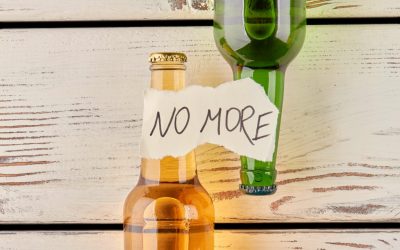Hosted by Foster (author/activist/all-around recovery icon), this 5-episode mini-series covers myriad sobriety-themed topics. Foster chats with an Ironman triathlete, skater legend Brandon Novak, and Grammy-winning artist, Sirah. I’m one of those people who joins a book club, then usually fails to read the book.
I wouldn’t typically put a famous podcast on this list, but Armchair Expert deserves it. Sure, each episode isn’t about sobriety, but the ones that are are poignant AF. Host and mega-celeb Dax Shepard (aka Mr. Kristen Bell) interviews some of the biggest names about some of the most challenging topics. Make sure to check out “Day 7,” where he candidly speaks about his relapse on opioids after 16 years of sobriety.
Episodes:
It should not be used in place of the advice of your physician or other qualified healthcare providers. The ODAAT Chat Podcast is about recovery from alcoholism, drug addiction, sobriety and the journey of recovery, community and healing. Guests tell their stories of what it was like, what happened and where they are now. The recovery stories they share are inspiring, funny and touching, providing hope to help others feel like they are not alone. In my opinion, one of the most powerful ways to stay sober is by hearing other people’s stories.
Shane Ramer created That Sober Guy podcast in 2015, a year into his recovery from a 17 year battle with drugs and alcohol. Shane shares his experience and invites guests on to share their journey with listeners. Guests include celebrities and also non-famous people who share their stories of transitioning from a life of addiction to one in recovery. That Sober Guy has 346 episodes and a 4.5 star rating out of 379 reviews. Have you ever wondered why you keep turning to alcohol, drugs or unwanted behaviors even after they’ve caused you harm?
The Hello Someday Podcast For Sober Curious Women
He also explores what recovery from addiction looks like from a variety of different people. He’s a licensed marriage and family therapist and certified sex addiction therapist who hopes to help folks in recovery by speaking his truth on this very show. Join him as interviews folks from across the recovery spectrum about topics ranging from narcissism to hypnosis to harm reduction and more. Now, she co-hosts Rehab Confidential with Joe Schrank, clinical social worker and founder of The Fix. The duo brings you a “unique and irreverent view on the world of addiction, recovery, and rehab.” They chat with an interventionist, a former bank robber, comedians, and everyone in between.
Ms. Mayes said the treatment centers operated largely unchecked for years, taking advantage of gaps in an Arizona program that funds health care for low-income tribal members. The schemes exploited overlapping American woes — addiction, soaring homelessness and a long history of disregard for Native American health. After many years of being colleagues and friends, the two coaches decided to collaborate and start Elevation Recovery. Since then, the coaches have been interviewing guests and sharing their experiences of dealing with recovering patients. They also encourage listeners that their mind, body, and spirit can eventually recover.
From Sobriety To Recovery An Addiction Recovery Podcast
Tricia is also the co-founder of Sober by Southwest, a sober music event in Austin, Texas. The Bubble Hour invites listeners to share their stories of recovery from alcohol addiction. Each week, host Jean McCarthy holds space for a guest to tell their truth, and together they explore topics relative to recovery. Now in its seventh season, The Bubble Hour has hundreds of archived episodes as a resource for those seeking sobriety-related content. Many of us are familiar with the term sober curious or sober curiosity, and it’s thanks to Ruby Warrington. She’s the author of the Sober Curious book series, host of the Sober Curious podcast, and a well-known thought leader in the sobriety community.
- Arizona spent $1 billion on addiction treatment, much of it fraudulent, officials said.
- Since then, the coaches have been interviewing guests and sharing their experiences of dealing with recovering patients.
- When she quit drinking in 2019, she dedicated herself to learning about alcohol’s influence on the brain and how it can cause addiction.
- This show hosts conversations centered on personal empowerment and addiction recovery with a Buddhist twist.
- The schemes exploited overlapping American woes — addiction, soaring homelessness and a long history of disregard for Native American health.
Because of their demeanor, viewers have said that listening to Sober Pod feels similar to hanging out with a friend. We publish material that is researched, cited, edited and reviewed by licensed medical professionals. The information we provide is not intended to be a substitute for professional medical advice, diagnosis or treatment.
Sobriety podcasts with Sober Bliss.
When you sign up, you’ll gain access to medical professionals, recovery coaching, peer support meetings, and more. Her conversations with guests show that life doesn’t get boring when you quit alcohol. Instead, their stories show that sobriety can make life even more exciting and fulfilling. This is an excellent podcast if you’re interested in discussions https://en.forexpamm.info/sober-living-program-in-kerrville-texas/ on self-care, taking it one day at a time, and general tips for staying strong in recovery. The Busy Living Sober podcast is designed to support the broad ecosystem of people impacted by addiction — including friends, families and co-workers. Their recovery support content is readily available online, allowing access to anyone from anywhere, at any time.
- But if you’ve been struggling with alcohol use and could use more support, programs like Ria Health can help.
- When I first quit drinking I went into Spotify and searched “sober” and started listening to podcasts.
- And aside from their stories, listeners often rave about the knowledge and humor that hosts Charlie and Jason bring to every episode.
- The Breaking Free podcast discusses everything it means to be in addiction recovery and thrive independently.
- Through lively discussions — based on lived experiences, research, and experts in the field — they unpack the ways recovery has been limited.
Jason Biggs, Edie Falco and Hank Azaria have joined the producing team of “The White Chip,” a comedy that will premiere Off-Broadway in 2024. Described as a “wry and wild” journey, the story follows an alcoholic’s unusual path to sobriety. McDermott disclosed his sobriety battle in a candid Daily Mail profile earlier this month. In his sit-down, McDermott noted that his issues with substance abuse was the primary reason that he split from Spelling, 50.
Sober Friends Podcast
Below, we’ve rounded up the 7 best sobriety podcasts out there, from Annie Grace’s This Naked Mind podcast, to Shane Ramer’s That Sober Guy. In the Sober Bliss Sobriety podcasts discover why a life of alcohol freedom is the most powerful act of self care and self love you can show yourself. Learn how to feel empowered by your choice to live the life you deserve without alcohol holding you back. For those seeking a life in recovery, podcasts have become a useful resource and a life line in the early months of sobriety. Listeners are able to hear conversations about recovery with the tap of a finger, and also join communities which these podcasts have built on social media. That’s the question being asked by host Alyson Premo, the founder of Sober Mom Tribe and the Sober Mom Coach.
In fact, you might be surprised to find that parenting is a lot like recovery. “It’s a beautiful, challenging, exhausting and rewarding process that provides the sweetest moments of joy,” podcast host Annika wrote on the official podcast website. Some of the episodes discuss alcohol withdrawals, the link between drinking and binge Boston Sober Homes eating, how to deal with loneliness and so much more. The Addicted Mind Podcast is about understanding addiction from a research and treatment perspective. Host Duane Osterlind, LMFT dives into what drives the addictive process, explores the latest research on addiction, and talks about the latest addiction treatment options.
Positive Sobriety Podcast
Several tribal members said they never spoke with any counselors or addiction experts. Instead, they were shuttled to group rehab sessions, where the only requirement was that they sign in and provide their tribal identification numbers so providers could start billing. It was a volume business, and the operators paid residents to recruit friends and family as new patients.
- People behind it tell listeners that their goal to stay clean of drugs and alcohol can be done with the right measures.
- I’m Gayle Macdonald, coach, teacher, mum, and lover of tea, living a life of sober bliss!
- The Addiction Podcast covers many views on drug and alcohol addiction.
- Our varied paths show listeners that there are myriad paths to recovery and countless songs to rock out to along the way.
- Contact us today to learn more about a treatment plan that could work for you and your needs.
In this one, each episode focuses on a particular aspect of recovery. Recovery Elevator emphasizes overcoming difficult parts of sobriety while also making room for the useful tips to help with daily life. Recovery Rocks is the podcast that I co-host with my friend/mentor, Lisa Smith, where we talk about all things recovery and rock ‘n roll. We each got sober in different ways (Lisa’s a proud 12-stepper whereas I stumbled into sober life as a social experiment through blogging), yet these differences bring us together more than drive us apart. Our varied paths show listeners that there are myriad paths to recovery and countless songs to rock out to along the way.


